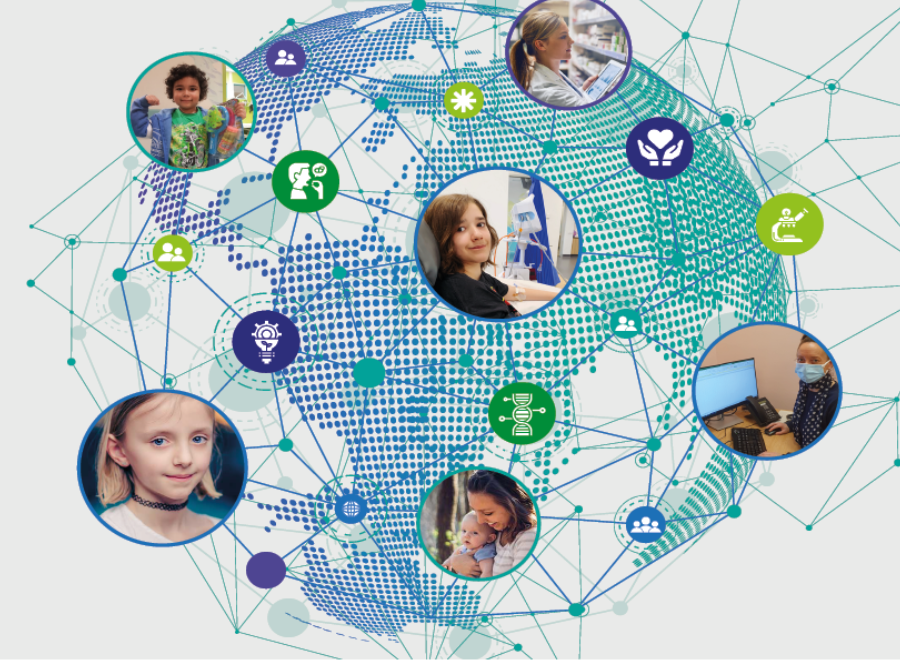Objective
The spirit of this worldwide effort revolves around collaboration, awareness, investments and action to ensure that early screening, quality of care, health awareness and research are given more visibility and end up high on the agenda of healthcare policies, in order to improve the patients' quality of life.
This year the focus is on the importance of working with real-world data (RWD, literally 'data from the real world'). RWD are primary research data that have been collected from patient registers, electronic medical records or databases, to to reflect how interventions would be used in routine clinical practice These data can be converted into knowledge on better PID care. It includes improving access to a diagnosis, but also focussing on high-quality treatment and care for PID patients through collaborative and real world data usage.
Prof. dr. Isabelle Meyts, specialist paediatric medicine and coordinator of the PID centre at UZ Leuven: "Beside genetics and scientific research on the pathways that are defective in PID, the careful collection and analysis of data on presentation, diagnosis and treatment are crucial to provide optimal care for the PID patients of the future, some of which suffer from ultrarare diseases. We also want to use the momentum of World PI Week to stress the importance of PID awareness once again, because it is still diagnosed much too late."
We want to stress the importance of PID awareness, because it is still being diagnosed much too late. prof. dr. Isabelle Meyts
prof. dr. Isabelle Meyts
Primary immunodeficiency
Primary immunodeficiency occurs when a person's immune system does not function properly, making them more vulnerable to repeated and sometimes fatal infections, auto-immune diseases, serious inflammation, extreme allergies or cancer. There are more than 450 known types of primary immunodeficiencies, that influence the lives of an estimated 10 million people worldwide. In Belgium PID occurs at a frequency of 1/2500. The more serious, rare disorders occur at a frequency of 1/10000. Of these only an estimated 50% have been diagnosed.
Impact
If you suffer from a chronic disease, you will need treatment with antibiotics, immunoglobins or immunomodulators for the rest of your life. Sometimes a stem cell transplant or gene therapy will be necessary to survive. Patients are often anxious and insecure abou their treatment or their future and also have to deal with physical fatigue. They're often misunderstood, because PIDs are little known and often cannot be seen from the outside.
Coffee talk
In response to the campaign, a "Patient-Clinician Coffee Talk" will take place at UZ Leuven on 21 April from 15.30 to 16.30 hrs, including prof. dr. Isabelle Meyts, specialist in paediatric medicine. There will be a discussion on how data can drive change and how crucial it is for policymakers to support data collection and analysis in PID.
The discussion will be broadcast live on Youtube. We hope you can join us!
More inforrmation on www.worldpiweek.org
